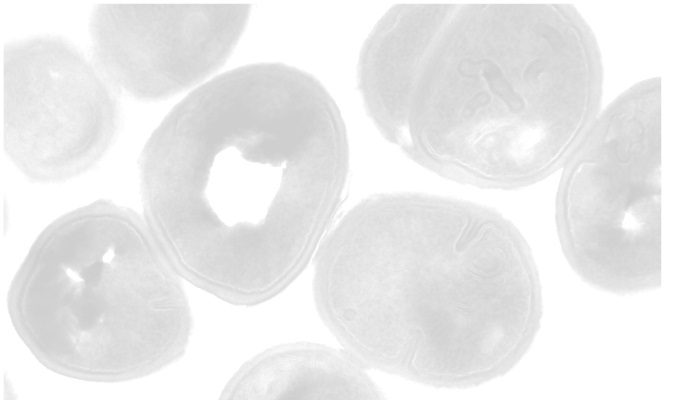
Design and development of therapeutic peptides
Team
Francesc Rabanal Anglada has authored, according to the ISI web of science, more than 100 international publications (61 peer-reviewed articles and reviews) with more than 1600 citations, and an h index of 24. He is also the inventor of 7 patents. He has directed or co-directed seven PhD dissertations and 17 Masters (M Sc) dissertations in chemistry.
Yolanda Cajal Visa has focused her research on the study of the interaction of peptides and proteins with lipid membranes. In many cases, this interaction defines the subsequent biological activity of peptides.
Facilities
The team has fully equipped labs for the chemical synthesis, characterization, and study of peptides at the Faculties of Chemistry and Pharmacy of the University of Barcelona. It also has access to the technical instruments, scientific facilities, and expertise of the University of Barcelona at the CCiTUB. Equipment is also available for the study of Langmuir films as well as the technology needed to prepare and characterize different types of liposomes.
- Analytical and preparative HPLC
- MALDI-TOF and ESI mass spectrophotometers
- UV-vis, fluorescence, FT-IR,
- Amino acid analysis
- 2 steady-state spectrofluorometers (Aminco AB2 and QuantaMaster, Photon Technology Instruments-PTI) equipped with polarizers
- 1 lifetime fluorometer (PTI),
- Last-generation instruments (Nima Technology and KSV), with Brewster angle microscope
- Extruder and high power sonicator for liposome preparation
- Surface potential devices, and formation of LB films on solid support for atomic force microscopy (AFM) observation and characterization
- Electronic microscopy (TEM/SEM, cryomicroscopy) and confocal microscopy
- Flow cytometry
- In vitro and in vivo studies
- Microcalorimetry
Design and development of therapeutic peptides
Introduction
Since 2003, the Group of Therapeutic Peptides (University of Barcelona) is involved in the research & development of new peptide-based chemical entities, from the design to the preclinical proof-of-concept stages, with the long-term objective of developing them as future drugs and medicines.
WHAT WE DO
Services
- Design and synthesis of potential peptide-based therapeutic compounds.
- Purification, characterization, and structure elucidation of peptide-based compounds
- Mechanism of Action studies:
- Fluorescence-based experiments, using covalently-labeled lipids and peptides
- Monolayers at the air/water interface as a tool to study peptide and protein interaction with the membrane: insertion kinetics at constant pressure/area, pressure/area isotherms, surface potential measurement, and morphology changes determined by Brewster angle microscopy, and atomic force microscopy on solid support (Langmuir-Blodgett films).
- Preparation of liposomes (SUVs, LUVs, GUVs), characterization of size distribution by light-scattering and determination of Z-potential.
- Flow-cytometry and microscopy to identify cell damage
- In vitro and in vivo proof of concept of new compounds (NCE) through integrated and multidisciplinary collaboration with other research groups within the University of Barcelona.
FOR WHOM WE WORK
Industry Sectors
Research on the design and development of therapeutic peptides is of high interest for the Pharmaceutical & Drug, Cosmetic, Chemical, and Biotechnology industries.
RESULTS
Transfer Activities
Previous R+D+I contracts and consultancy services
- Design and chemical synthesis of bioactive peptides and pseudopeptides (Method Pseudo).
- Development of novel peptide analogues for infectious disease applications.
- Consultancy on the substitution of formol as a fixative solution in human clinical samples.
Patents
WO2020074405 – Polymyxin-based compounds useful as antibacterial agents
WO2014167160 – Peptide compounds suitable for use as antibiotic agents.
WO2011054993 – Peptides for the treatment of ocular hypertension and/or glaucoma.
WO2008071594 – Polypeptides with the capacity to entrap drugs.
Recent Publications
- Cano, A.; Ettcheto, M.; Espina M.; López-Machado, A.; Cajal, Y.; Rabanal F.; Sánchez-López, E.; Camins, A.; García M. L.; Souto, E. B. (2020) State-of-the-art polymeric nanoparticles as promising therapeutic tools against human bacterial infections. Journal of Nanobiotechnology, 18, 156
- Rabanal*, Y. Cajal. Recent advances and perspectives in the design and development of polymyxins (2017) Natural Product Reports, 34, 886 – 908
- Rudilla, E. Fusté, Y. Cajal, F. Rabanal, T. Vinuesa, M. Viñas (2016) Synergistic Antipseudomonal effects of synthetic peptide AMP38 and carbapenems. Molecules. 21, 122
- Rabanal*, A. Grau-Campistany, X. Vila-Farrés, J. González-Linares, J. M. Borras, J. Vila, A. Manresa, Y. Cajal (2015) A bioinspired peptide scaffold with high antibiotic activity and low in vivo toxicity. Scientific Reports, 5, 10558
- Grau A., E. Strandberg, P.Wadhwani, J. Reichert, J. Bürck , F. Rabanal, A. S. Ullrich (2015) Hydrophobic mismatch demonstrated for membranolytic peptides and their use as molecular rulers to measure bilayer thickness in cells. Sci. Rep. 5, 9388

